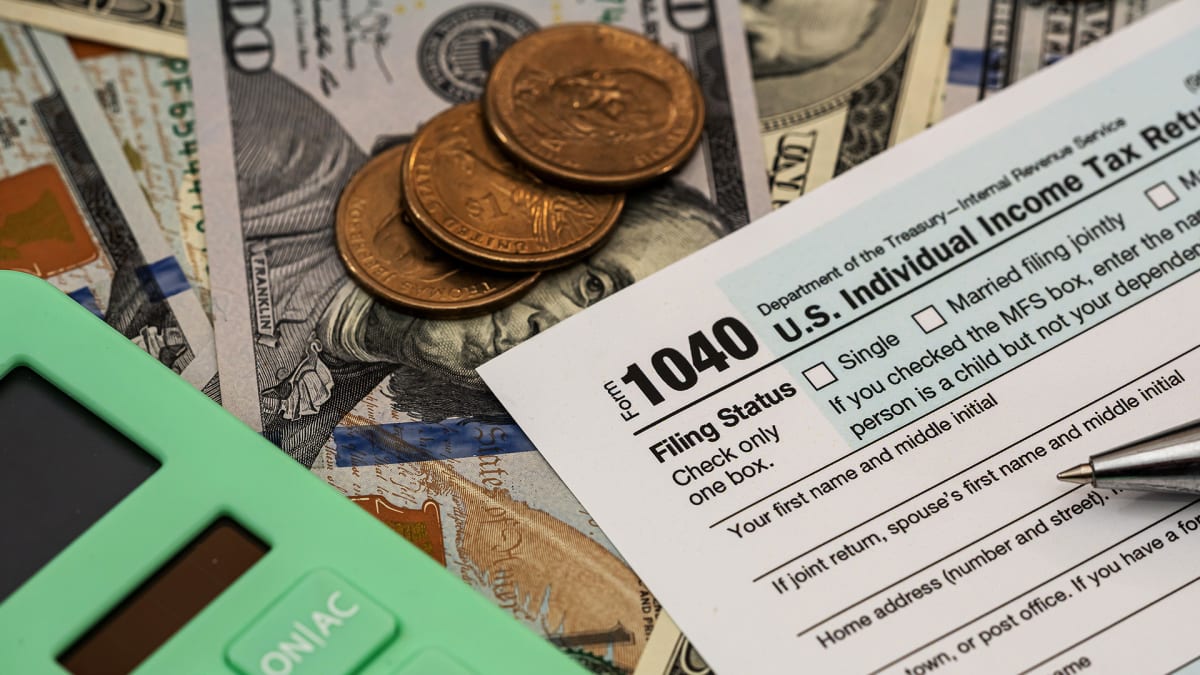
It’s tax season and living isn’t exactly easy for the estimated 165.7 million U.S. individual tax returns (2022 numbers) that fulfill their civic obligations to the Internal Revenue Service.
Of that estimated number, approximately 30% will procrastinate on their tax filing this year, with most of that number stating their taxes were “too complicated and stressful," according to a new study by IPX1031.
DON'T MISS: Here's Why Your Tax Refund Is Probably Going to Be Minuscule
“Others are avoiding the task because it’s too time-consuming, or they don’t believe they’re getting a refund,” the IPX study reported.
Many Americans procrastinate on their taxes because they'd rather do basically anything else than insert tax form data into their tax software.
“They find it boring or tedious,” said Choice Tax Relief founder and certified public accountant Logan Allec. “Also, the process can also be confusing for many people.”
Other Americans may have undergone a traumatic life experience, causing them to get behind on their taxes.
“For some of these folks, the problem has snowballed over several years,” Allec told TheStreet. “For whatever reason, there's not much upside in putting off until tomorrow what you could do today.”

Shutterstock
Waiting To File Taxes is a Financial Risk
There’s a downside to filing your taxes at the last minute, or filing them late, tax experts say.
“If you're expecting a refund, procrastinating on filing your taxes only extends the length of time before your refund finds its way into your pocket,” Allec said. “You could be putting money to work for you by paying off debt or investing in the stock market. Every day you wait to file your taxes and get that refund is another day that money isn't working for you.”
Additionally, if you end up owing the IRS, waiting until the last minute could mean missing your tax payment before the deadline.
That’s a big problem.
“Paying your tax liability after the deadline results in a failure-to-pay penalty in the amount of 0.5% of your unpaid tax debt per month or part of the month,” Allec noted. “This penalty maxes out at 25% of your liability.”
By waiting until after the deadline (or extended deadline, if you filed for an extension), you'll be hit with a heavier failure-to-pay penalty.
“That’s equal to 5% of your unpaid tax debt per month or part of the month that your return is still unfiled,” Allec added. “This penalty maxes out at 25% of your liability.”
Getting Ahead With Your Tax Game
To avoid that scenario, get going on your taxes and start preparing right away.
“People need to organize themselves and their various cash receipts and cash disbursements they earn or incur,” said Ageras CPA Giuseppa Maceri. “Set up a folder, whether electronic or physical and maintain proper records throughout the year.”
Working with a professional tax specialist should speed things along, but you have to choose the right tax accountant first.
“Look for a preparer who has availability and preferably is available year-round,” Maceri said. “Ask the tax preparer if he or she offers an IRS e-file option. If someone does e-file and chooses a direct deposit, they will likely get a refund in less than 21 days.”
“Also, make sure any tax refund will go directly to a bank account; don’t rely on snail mail,” Maceri added
It’s worth noting that 51% of IPX1031 study respondents said they have investments. “Among them, 42% say they get help from online services to file taxes on their investments, while 29% report filing on their own,” the report stated.
What to Do If You Have to File Late
If you can't file your taxes by the IRS deadline, there are options.
“Anyone, regardless of income, can go to the IRS Free File on www.irs.gov., Maceri said. “To receive an automatic six-month extension of time to file a return, file Form 4868 must be submitted. Just note that this does not exempt anyone from their tax liability.”
In that scenario, the IRS will automatically process an extension when a taxpayer selects Form 4868 and makes a full or partial federal tax payment by the April 18 due date using their Online Account, Direct Pay, the Electronic Federal Tax Payment System (EFTPS), or a debit, credit card or digital wallet.
“If someone does not file their taxes in a timely manner, they will incur a failure to file penalty, which is a percentage of the taxes not paid on time,” Maceri noted. “The penalty is calculated based on how late this person or business does file their return and based on the amount of unpaid tax as of the original payment due date.”
“However, this can all be avoided with proper planning,” he added.







